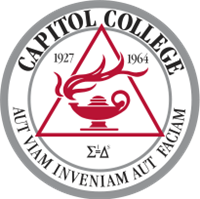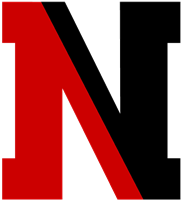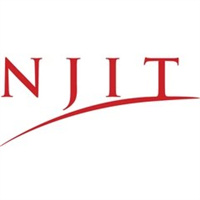What do they do?
Design and implement computer and information networks, such as local area networks (LAN), wide area networks (WAN), intranets, extranets, and other data communications networks. Perform network modeling, analysis, and planning, including analysis of capacity needs for network infrastructures. May also design network and computer security measures. May research and recommend network and data communications hardware and software.
Also known as:
Design Engineer, Network Analyst, Network and Security Engineer, Network Consultant, Network Engineer, Network Systems Consultant, Networking Systems and Distributed Systems Engineer, Solutions Architect, Telecommunications Analyst
-
0.2%
Change
Ranks #53 in job growth rate290Job Openings
Ranks #21 in net job growth
-
University of Notre Dame
Notre Dame, IN
-
Capitol Technology University
Laurel, MD
-
Northeastern University
Boston, MA
-
Johns Hopkins University
Baltimore, MD
-
New Jersey Institute of Technology
Newark, NJ
Looking for colleges that offer a specific major? Use the College Match Tool to find your best-matched schools and discover your estimated Net Price!
- Doctorate or Professional Degree (1%)
- Master's degree (14%)
- Bachelor's degree (42%)
- Associate's degree (16%)
- Some college, no degree (21%)
- High school diploma equivalent (6%)
- Less than high school diploma (<1%)
Most Popular Majors that prepare Computer Network Architects
-
#1
-
Degrees Granted
773
-
Female Students
196
-
Male Students
577
-
Median Starting Salary
$53,000
-
-
#2
-
Degrees Granted
401
-
Female Students
82
-
Male Students
319
-
Median Starting Salary
$64,700
-
-
#3
-
Degrees Granted
134
-
Female Students
46
-
Male Students
88
-
Median Starting Salary
$54,033
-
-
#4
-
Degrees Granted
2
-
Female Students
1
-
Male Students
1
-
Median Starting Salary
$53,350
-
-
#5
-
Degrees Granted
2
-
Female Students
1
-
Male Students
1
-
Median Starting Salary
$46,900
-
People in this career often have these skills:
- Critical Thinking - Using logic and reasoning to identify the strengths and weaknesses of alternative solutions, conclusions, or approaches to problems.
- Reading Comprehension - Understanding written sentences and paragraphs in work-related documents.
- Active Listening - Giving full attention to what other people are saying, taking time to understand the points being made, asking questions as appropriate, and not interrupting at inappropriate times.
- Complex Problem Solving - Identifying complex problems and reviewing related information to develop and evaluate options and implement solutions.
- Speaking - Talking to others to convey information effectively.
- Judgment and Decision Making - Considering the relative costs and benefits of potential actions to choose the most appropriate one.
- Writing - Communicating effectively in writing as appropriate for the needs of the audience.
- Systems Analysis - Determining how a system should work and how changes in conditions, operations, and the environment will affect outcomes.
- Systems Evaluation - Identifying measures or indicators of system performance and the actions needed to improve or correct performance, relative to the goals of the system.
- Coordination - Adjusting actions in relation to others' actions.
- Programming - Writing computer programs for various purposes.
People in this career often know a lot about:
- Computers and Electronics - Knowledge of circuit boards, processors, chips, electronic equipment, and computer hardware and software, including applications and programming.
- Telecommunications - Knowledge of transmission, broadcasting, switching, control, and operation of telecommunications systems.
- Engineering and Technology - Knowledge of the practical application of engineering science and technology. This includes applying principles, techniques, procedures, and equipment to the design and production of various goods and services.
- English Language - Knowledge of the structure and content of the English language including the meaning and spelling of words, rules of composition, and grammar.
- Design - Knowledge of design techniques, tools, and principles involved in production of precision technical plans, blueprints, drawings, and models.
- Mathematics - Knowledge of arithmetic, algebra, geometry, calculus, statistics, and their applications.
People in this career often have talent in:
- Oral Comprehension - The ability to listen to and understand information and ideas presented through spoken words and sentences.
- Written Comprehension - The ability to read and understand information and ideas presented in writing.
- Deductive Reasoning - The ability to apply general rules to specific problems to produce answers that make sense.
- Information Ordering - The ability to arrange things or actions in a certain order or pattern according to a specific rule or set of rules (e.g., patterns of numbers, letters, words, pictures, mathematical operations).
- Written Expression - The ability to communicate information and ideas in writing so others will understand.
- Problem Sensitivity - The ability to tell when something is wrong or is likely to go wrong. It does not involve solving the problem, only recognizing that there is a problem.
- Inductive Reasoning - The ability to combine pieces of information to form general rules or conclusions (includes finding a relationship among seemingly unrelated events).
- Oral Expression - The ability to communicate information and ideas in speaking so others will understand.
- Near Vision - The ability to see details at close range (within a few feet of the observer).
- Category Flexibility - The ability to generate or use different sets of rules for combining or grouping things in different ways.
- Speech Clarity - The ability to speak clearly so others can understand you.
- Speech Recognition - The ability to identify and understand the speech of another person.
People in this career often do these activities:
- Develop computer or information security policies or procedures.
- Recommend changes to improve computer or information systems.
- Maintain contingency plans for disaster recovery.
- Monitor the performance of computer networks.
- Analyze data to identify or resolve operational problems.
- Coordinate project activities with other personnel or departments.
- Maintain computer networks to enhance performance and user access.
- Develop models of information or communications systems.
- Resolve computer network problems.
- Develop specifications for computer network operation.
- Provide technical support for computer network issues.
- Update knowledge about emerging industry or technology trends.
- Evaluate project designs to determine adequacy or feasibility.
- Modify software programs to improve performance.
- Install computer software.
- Install computer hardware.
- Document network-related activities or tasks.
- Estimate time or monetary resources needed to complete projects.
- Supervise information technology personnel.
- Analyze website or related online data to track trends or usage.
- Conduct research to gain information about products or processes.
- Test computer hardware performance.
- Collaborate with others to determine design specifications or details.
- Communicate project information to others.
- Design integrated computer systems.
- Configure computer networks.
- Manage financial activities of the organization.
- Manage budgets for appropriate resource allocation.
- Coordinate software or hardware installation.
- Develop information communication procedures.
- Manage documentation to ensure organization or accuracy.
- Maintain computer hardware.
- Develop testing routines or procedures.
- Collaborate with others to resolve information technology issues.
- Teach others to use computer equipment or hardware.
This page includes data from:

 Occupation statistics: USDOL U.S. Bureau of Labor Statistics Occupational Employment Statistics
Occupation statistics: USDOL U.S. Bureau of Labor Statistics Occupational Employment Statistics









